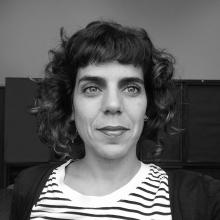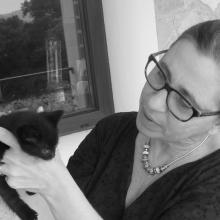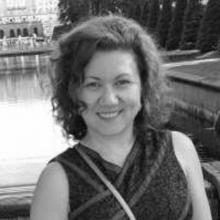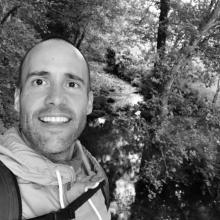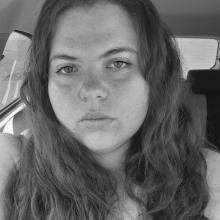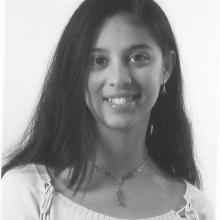Laboratório de Psicolinguística
Research in the Laboratory of Psycholinguistics focuses on language processing at the word and sentence levels.
We employ different experimental techniques (e.g., eyetracking, self-paced reading, lexical priming) to investigate aspects of lexical, morphological, and syntactic processing, in typical and atypical populations (e.g., L1 and L2 speakers, language and reading disorders).
Our research is primarily organized around four main lines:
- L1 and L2 processing, focusing on (a) cross-linguistic differences, particularly on specific properties of European Portuguese and its contrast with other languages and varieties, and (b) the determinants of intra- and inter-individual variability in language processing;
- Language processing from a lifespan perspective, with a focus on the multifaceted outcomes of aging across different linguistic domains and cognitive functions;
- Statistical methods for the language sciences: their development, promotion, and application to questions of psycholinguistic interest;
- Clinical linguistics, including the development of instruments for the assessment and training of linguistic competencies.
Selected publications
- Ciaccio, L., & Veríssimo, J.* (2022). Investigating variability in morphological processing with Bayesian distributional models. Psychonomic Bulletin & Review, 29, 2264–2274. [*equal contribution] https://doi.org/mg7p
- Fernandes, E., Luegi, P., Correa Soares, E., de la Fuente, I., & Hemforth, B. (2018) Adaptation in pronoun resolution: Evidence from Brazilian and European Portuguese. Journal of Experimental Psychology: Learning, Memory, and Cognition, 44, 1986-2008. https://doi.org/gk4ntd
- Freitas, M. J., Lousada, M., & Alves, D. C. (Eds.) (2022). Linguística clínica: Modelos, avaliação e intervenção [Clinical linguistics: Models, assessment, and intervention]. Language Science Press. https://langsci-press.org/catalog/book/358
- Pereira, N., Costa, A., & Guerreiro, M. (2022). Effects of word length and word frequency among dyslexic, ADHD-I and typical readers. Journal of Eye Movement Research, 15. https://doi.org/mx7x
- Veríssimo, J. (2021). Analysis of rating scales: A pervasive problem in bilingualism research and a solution with Bayesian ordinal models. Bilingualism: Language and Cognition, 24, 842–848. https://doi.org/gtgn
- Veríssimo, J., Verhaeghen, P., Goldman, N., Weinstein, M., & Ullman, M. T. (2022). Evidence that ageing yields improvements as well as declines across attention and executive functions. Nature Human Behaviour, 6, 97–110. https://doi.org/gmh3bj
- Villalva, A. (2022). Complex verbs: The interplay of conversion and other word-formation processes. In A. E. Ruz, C. Fernández-Alcaina, & C. Lara-Clares (Eds.), Paradigms in word-formation (249-282). John Benjamins. https://doi.org/mx7w
History
Our research in psycholinguistics began in the early 1980s with the studies of Prof. Isabel Hub Faria on paranoid schizophrenic discourse. A few years later, the ‘Group for the Study of Language and Cognition’ was founded, which brought together researchers in psychology, linguistics, cybernetics, and mathematics. Our first studies on language acquisition took place around this time and contributed to the development of child language corpora.
In the late 1980s, the ‘Laboratory of Psycholinguistics’ was formally recognized as a research group within the Center of Linguistics of the University of Lisbon (CLUL) and we gained access to our first laboratorial facilities. More recently, we have acquired a range of well-equipped facilities for conducting eye-tracking and behavioral tasks, including an experimental booth for data collection and Eyelink eye-trackers (both static and portable).
Throughout its history, the members of the Laboratory of Psycholinguistics have conducted research on aeras such as language processing, reading, speech perception and production, language acquisition and development, second language learning and processing, language disorders, and Portuguese sign language.
Much of this research has involved close collaborations with national and international institutions, including other schools of the University of Lisbon and universities in Brazil (UFP, UFRJ, UFSC), Germany (Goethe Frankfurt, Potsdam) and the USA (Georgetown).
Isabel Hub Faria founded the Laboratory of Psycholinguistics and directed it until 2009. Since then, the research group has been headed by Armanda Costa, Isabel Falé, and currently, by João Veríssimo and Paula Luegi.
Membros
Investigadores integrados com doutoramento
Investigadores integrados sem doutoramento
Colaboradores
Concluídos
| Projeto | Data | Fin. |
|---|---|---|
| Compreensão na Leitura. Processamento de Palavras, Frases e Textos | - | FCT
|
| Recursos | Tipo |
|---|---|
| Economics e-Translations into and from European Languages | Base de dados |
| O guia de pronúncias em português - Port_ProDi | Base de dados |
. (2006). Ser professor de Português numa sociedade em mudança, in Ensino do Português para o século XXI. In (I. Duarte and P. Mourão. Lisboa, pp. 57-65). Colibri e FLUL. |
. (2005). A língua materna nos primeiros anos de escolaridade: os problemas sociais de escolarização. In A Língua Portuguesa: Presente e Futuro. Lisboa: FCG. |
. (2000). Processamento da informação pela leitura e pela escrita. In Literacia e Sociedade. Contribuições multidisciplinares (pp. 13-130). M. R. Delgado Martins, G. Ramalho & A. Costa. Lisboa: Caminho. |
. (1997). Saber ler e saber ensinar a ler. In . R. V. Castro & L. Sousa. Vila Real: APL - Colibri. |
. (1996). Se a Língua Materna não se pode ensinar, o que se aprende nas aulas de Português?, in Formar Professores de Português, Hoje. In . Delgado Martins, I. Rocheta & D. R. Pereira. Lisboa: Colibri. |
. (1992). Leitura: conhecimento linguístico e compreensão, in Para a Didáctica do Português, seis estudos de Linguística. In (pp. 105-117). Delgado Martins et al. Lisboa: Colibri. |
. (1991). Programas de Língua Portuguesa: competências linguísticas e práticas de língua, in Documentos do Encontro sobre os Novos Programas de Português. In . Lisboa: Colibri. |
. (1991). Proposta de nomenclatura gramatical (Ensino Básico e Secundário), in Documentos do Encontro sobre os Novos Programas de Português. In . Delgado Martins et al. Lisboa: Colibri. |
. (2012). Searching a mixed corpus in the light of the new orthographic norm, in Computational processing of the portuguese language. In (pp. 56-62). H. |
. (2012). Processamento da informação prosódica no cérebro. In Nada na linguagem lhe é estranho. Homenagem a Isabel Hub Faria (pp. 433-449). In A. Costa & I. Duarte. Porto: Edições Afrontamento. |
. (2005). Comunicar: tatuagem de afectos. In Livro de Homenagem à Profª Maria Emília Ricardo Marques (pp. 427-443). Universidade Aberta: Lisboa. |
. (2001). Avaliação linguística de indivíduos com diagnóstico de fenda palatina ou fenda lábio-palatina, in Fendas palatinas: estudo multidisciplinar. In (pp. 71-126). Faria & I. Falé. Lisboa: Edições Colibri e Laboratório de Psicolinguística. |
. (2012). Estudo linguístico das brincriações miacoutianas em cada Homem é uma Raça. In Nada na linguagem lhe é estranho. Estudos em homenagem a Isabel Hub Faria. A. Costa & I. Duarte. Porto: Edições Afrontamento. |
. (2012). La phraséologie créative en traduction: préserver ou effacer. In La rhétorique à l épreuve de la traduction. Orléans: SEPTET (Socété d Études des Pratiques et Théories en Traduction). |
. (2010). Créativité et expression figée: entre syntaxe et sémantique, in Liens Logiques, Études sur la Combinatoire et la Hiérarchie des Composants. In . Castro et al. Berne: Peter Lang. |
. (2006). Língua e Categoria. In Lda (Lda. JORGE and G. (2006). "Língua e Categoria". Gramática de Língua Francesa. Beta: Projetos). . |
. (1997). A Tradução na FLUL. In La Traduction au Portugal: Formations et Professions. Castelo Branco: ESE. |
. (2016). Gramática – ensino, aprendizagem e avaliação, in Manual de Língua Portuguesa para professores do ensino primário. In . Costa, F. Botelho, L. Solla & L. Soares. Luanda: PAT. |
. (2012). Indicators of informativity and syntactic complexity in developmental writing. In Applied Psycholinguistics. Positive Effects and Ethical Perspectives. Vol II (pp. 220-226). G. Mininni & A. Manuti. Milano: Franco Angeli. |
. (2016). A especulação das cores. In Giochi di specchi: modelli, tradizioni, contaminazioni e dinamiche intercultural nei e tra paesi di língua portoghese (M. Lupetti & V. Tocco). Pisa: Edizioni ETS. |
. (2015). Prefácio. In Dislexia. Método Fonomímico. Trocas fonológicas. Consciência fonológica e fonoarticulatória. Exercícios de leitura e de ortografia (P. Teles, Vol. 57). Lisboa: Distema. |
. (2017). Conhecimento implícito, consciência linguística e escrita. In A aquisição de língua materna e não materna. Questões gerais e dados do Português (M. J. Freitas and A. L. Santos). Berlin: Language Science Press. Retrieved from http://langsci-press.org/ |
. (2017). Consciência linguística: aspetos sintáticos. In Aquisição de Língua Materna e Não Materna. Questões Gerais e Dados do Português (M. J. Freitas and A. L. Santos, pp. 409-438). Questões Gerais e Dados do Português. Berlin: Language Science Press. |
. (2016). Psicolinguística e Ciência Cognitiva. In Manual de Linguística Românica. Series Manuals of Romance Linguistics (Martins, A. M. e Carrilho, E., Vol. 16, pp. 336-368). Berlin/Munich/Boston: De Gruyter. |
. (2015). Da neologia estilística à tradução: o caso de Mia Couto. In Neologia das Línguas Românicas (I. M. Alves, & E. Simões Pereira). São Paulo: Humanitas / CAPES. |
. (2017). Fraseologia, fraseologia criativa e tradução. In Fraseologia and Cia. Entabulando diálogos reflexivos (Silva and Suzete, Vol. 2). Campinas and SP: Pontes. |
. (2016). The phonology and morphology of word formation. In The Handbook of Portuguese Linguistics (Wetzels, L., Menuzzi and S. and Costa, J., pp. 167-187). Wiley-Blackwell. |
. (2015). Filling gaps in dictionary typologies. In Planning Non-existent Dictionaries. Dicionaristica IV (J. P. Silvestre & A. Villalva, pp. 86-102). Lisboa-Aveiro: Centro de Linguística da Universidade de Lisboa - Universidade de Aveiro. |
. (2016). Derivados de verbos de movimento nas línguas ibéricas. In Armonía y Contrastes (J. M. Santos Rovira, pp. 299-312). Lisboa: Faculdade de Letras da Universidade de Lisboa. |
. (2016). On the gramatical substance of colour words. In Colour and Colour Naming, cross-linguistic approaches. Dicionarística V (Silvestre, J. P. and Cardeira, E. and Villalva, A., pp. 105-129). Lisboa-Aveiro: Centro de Linguística da Universidade de Lisboa - Universidade de Aveiro. |


